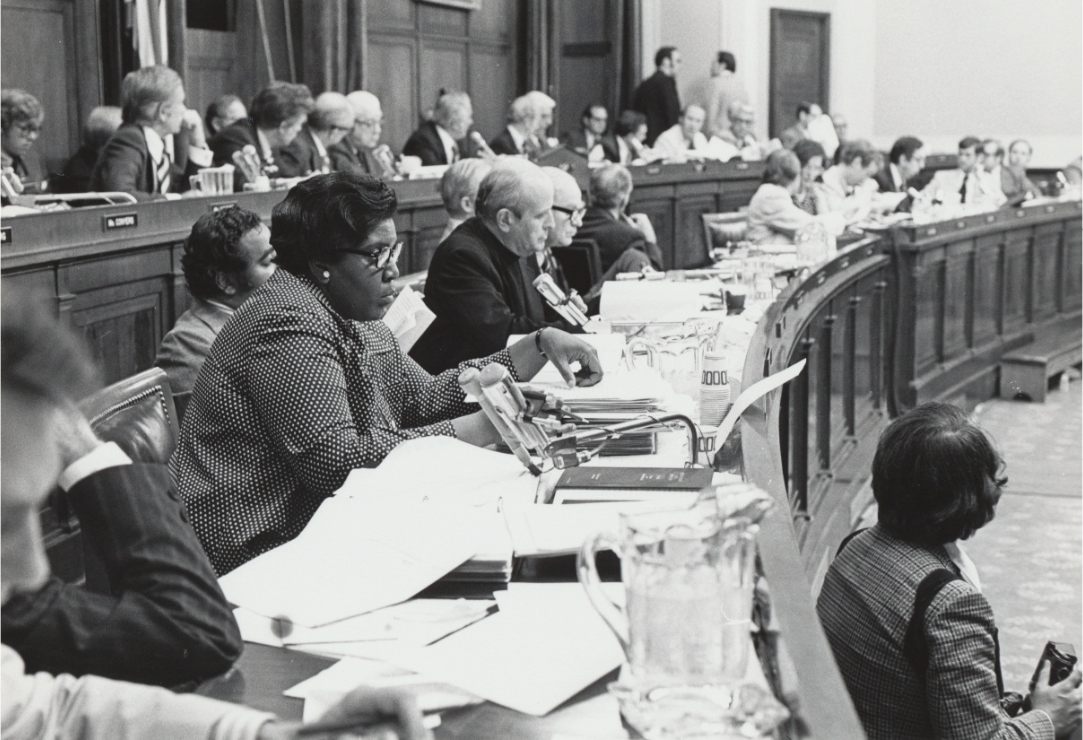
The testimony of Barbara Jordan, the first African American elected to the Texas Senate after Reconstruction and the first Southern African-American woman elected to the House of Representatives, provides a strong case for the 1975 Voting Rights Act Extension and Expansion. She acknowledges the victories of the Voting Rights Act thus far and the victories still yet to come. Jordan argues that while the Voting Rights Act has been monumental in overcoming blatant discriminatory practices, “it has yet to overcome subtle discriminatory practices.” Although she asserts that the first priority should always be the extension of the act already in place which protects mainly black voters, she goes on to advocate for Mexican-American voters, particularly those located in Texas. Jordan cites several examples of Mexican-Americans being denied the right to register to vote, being denied the right to vote even once an individual is registered,being denied absentee ballots, and having their jobs threatened or taken away as a result of their voting practices.
Barbara Jordan’s testimony continues to hold significant importance when looking at the implementation of the 1975 Voting Rights Act. Through her testimony, we see how important it is to stand in solidarity with others. Having support from other communities, especially from other minority communities, makes the issues of the Voting Rights Act Extension and Expansion bigger than just “a Chicano problem.” The testimony also provided humanization of the act and its consequences as Jordan recounted her own struggles as an Black woman attempting to run for a seat in the House of Representatives. This humanization is something seen in several other sources cited in this project and has proved to be incredibly effective in passing important protective legislation throughout history. Only with the support of important figures such as Barbara Jordan was the 1975 Voting Rights Act Extension and Expansion able to be implemented.
“In 1965 this Congress heard of Mary Thomas of Humphreys County, Mississippi. She tried to register. It happens that she also ran a small store which she used to support herself and six children. Fifteen minutes after trying to register she was arrested on a business technicality, thrown in jail overnight and fined $300. Today in at least three Texas towns that we know of the white majority have boycotted Mexican-American owned businesses supporting minority candidates. The boycotts effectively ruined their businesses because they could not support themselves on the economy of the minority population alone. In 1965 this Congress heard of a registrar disqualifying registration forms if a voter could not put down the exact year, month and date of their birth. Today registration forms in Texas have been discarded if an individual made an error, crossed it out, and provided the correct information. Voting Procedures in Texas are used to discourage voting participation. In some communities where paper ballots are used Voters are not provided voting booths in which to cast secret ballots. They are forced to vote on large tables where everybody can see. There have been instances where the clerk handling absentee ballots will fill out the ballot for Anglos over the phone but will not provide assistance to minority voters. Under state law, officials can open ballot boxes after only ten voters have deposited their ballots. Votes of minorities who need to vote early in the day because of their job situation are easily correlated with individuals.”
Jordan, Barbara. “Extension of the Voting Rights Act.” Testimony of representative Barbara Jordan before the subcommittee on constitutional rights senate committees on the judiciary, April 1975. https://texashistory.unt.edu/ark:/67531/metapth611318/.